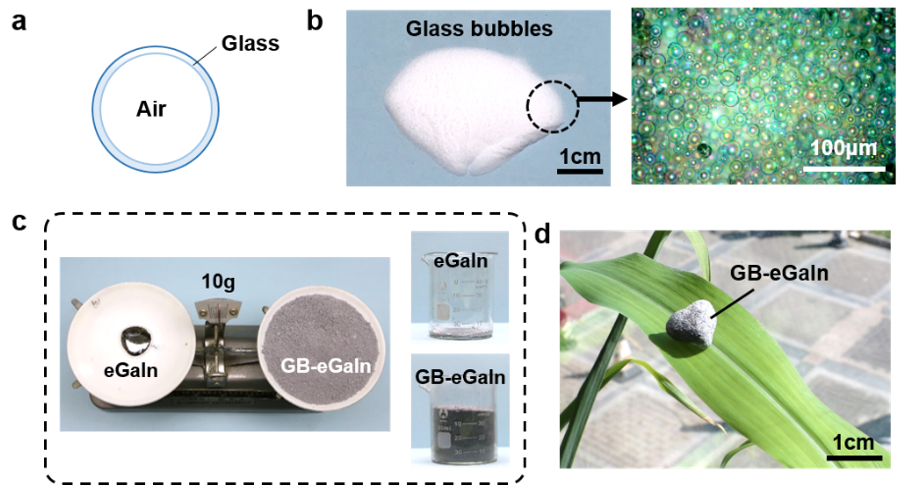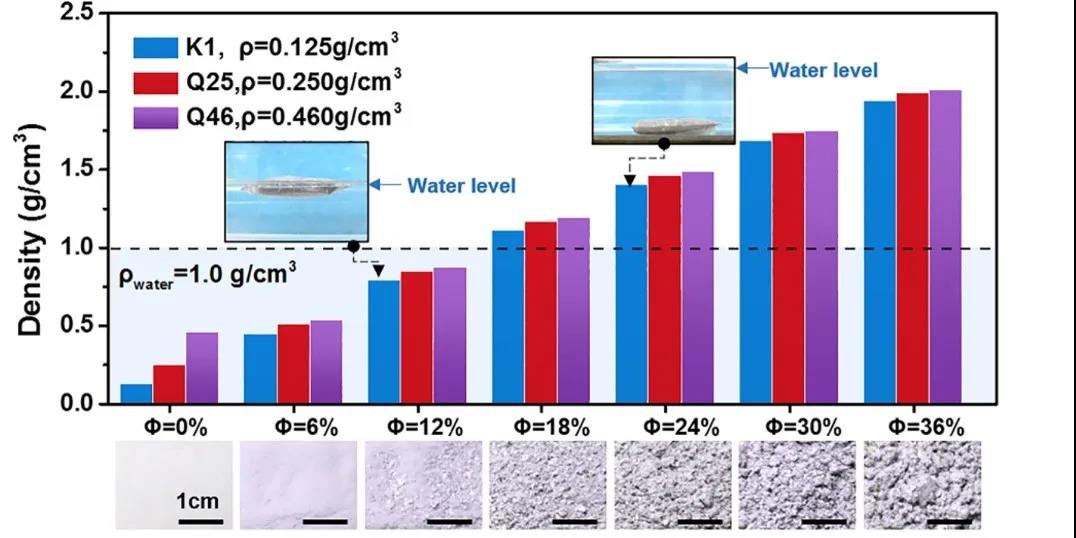What if metal was more than just a cold and rigid material?Although T-1000, the self-repairing, shape-shifting android assassin was merely a figment of creative imagination, the vision is a step closer to becoming reality. In fact, there are metals that behave like water and do not solidify at room temperature.
Benefitting from good electrical conductivity and fluidity, these liquid metals attract the likes of various industries such as wearable sensors, exoskeleton systems and soft robotics. However, the heavy weight of metal stood out as a major concern, for which may bring discomfort and extra energy loss especially when donned on humans.
To overcome the challenge, Professor Liu Jing from Tsinghua’s School of Medicine led a team of researchers from Tsinghua and the Chinese Academy of Sciences to propose a concept of “lightweight liquid metal entity”. They developed a liquid metal alloy less dense than water by combining the material with hollow glass beads, which could be potentially used to make lightweight exoskeletons or transformable robots.
The research was recently published in Advanced Functional Materials and selected as the inside back cover. The density of the material (called GB-eGaIn) decreased more than 70% as compared to the original metal, which means it can float on water under specific situations. Based on these results, two typical structures of GB-eGaIn was designed, including the planar structure and 3D structure.

Figure 1. GB-eGaIn and glass bubbles.

Figure 2. Density of GB-eGaIn with different concentrations.

Figure 3. Behavior of GB-eGaIn when contact with water in packaged and unpackaged
This material has good phase transition properties with the ability to switch between a completely soft state (like water) and a rigid metal level under temperature regulation. What’s more, when combined with water-proof package materials, GB-eGaIn can also realize controllable float and sink behavior. These results show the potential of diversity shaping and reliable mechanical/electrical performance of GB-eGaIn, indicating its feasibility for use as temperature-regulated functional components, and may offer potential use in developing advanced smart underwater devices.
Research | Tsinghua researchers invented metal that refuses to sink
Source: School of Medicine
Editor: Lin Lu, Cassandra Ler